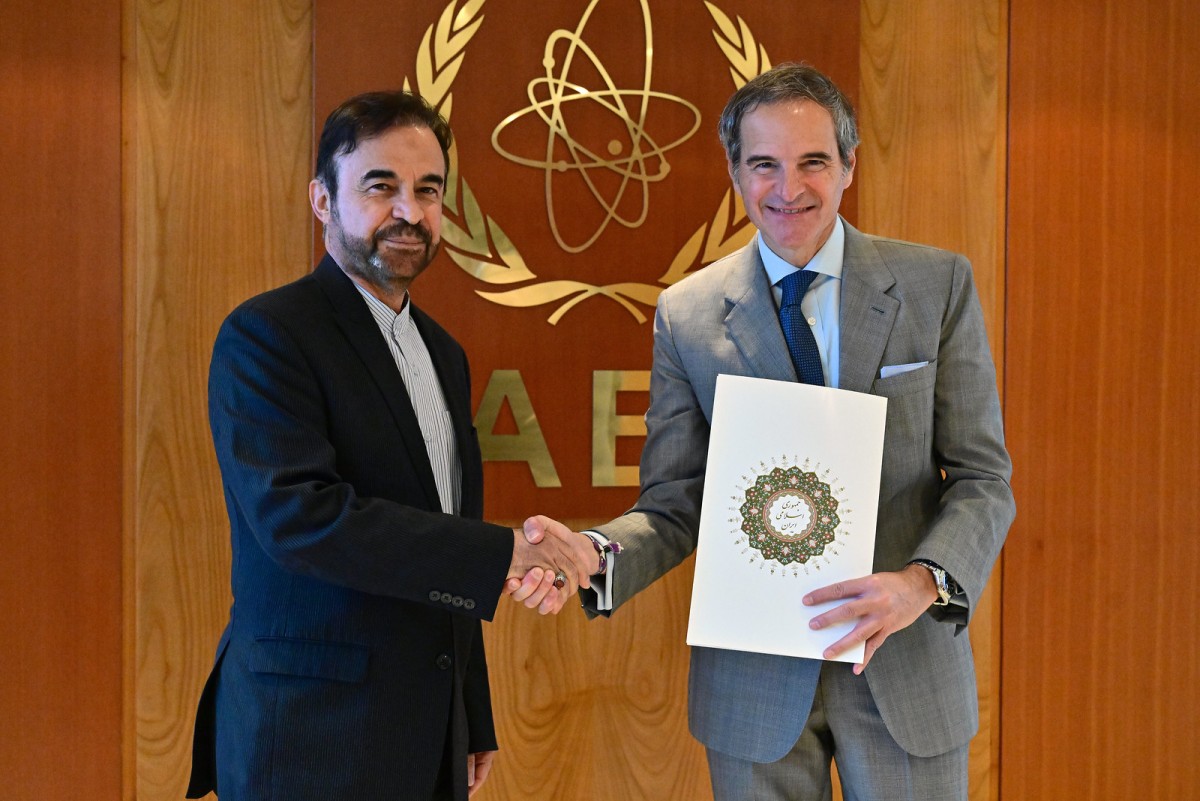Sponsored Content
Iran Tensions Overshadow IAEA Meeting in Vienna: Tehran Warns of 'Strategic Mistake'
A resolution by the International Atomic Energy Agency (IAEA) condemning Iran for “failing to fulfill” its nuclear safeguards obligations has led to sharp warnings from Tehran at the ongoing meeting of the Board of Governors in Vienna.
 Reza Najafi (l.), Iran's envoy to the IAEA, and IAEA Chief Rafael Mariano Grossi (r.) now have the task of smoothing tensions and preventing international turmoil. / Picture: © Flickr / Dean Calma / IAEA [CC BY 2.0 (https://creativecommons.org/licenses/by-sa/2.0/)]
Reza Najafi (l.), Iran's envoy to the IAEA, and IAEA Chief Rafael Mariano Grossi (r.) now have the task of smoothing tensions and preventing international turmoil. / Picture: © Flickr / Dean Calma / IAEA [CC BY 2.0 (https://creativecommons.org/licenses/by-sa/2.0/)]
The resolution, promoted by the E3 countries (France, Germany, and the UK) and supported by the US, could derail the indirect nuclear negotiations between Tehran and Washington, which were to continue in Muscat under Omani mediation.
Iranian Foreign Minister Abbas Araghchi described the E3's move on X as “another major strategic mistake.” He accused the European signatories…
or Log In
Fast News Search





